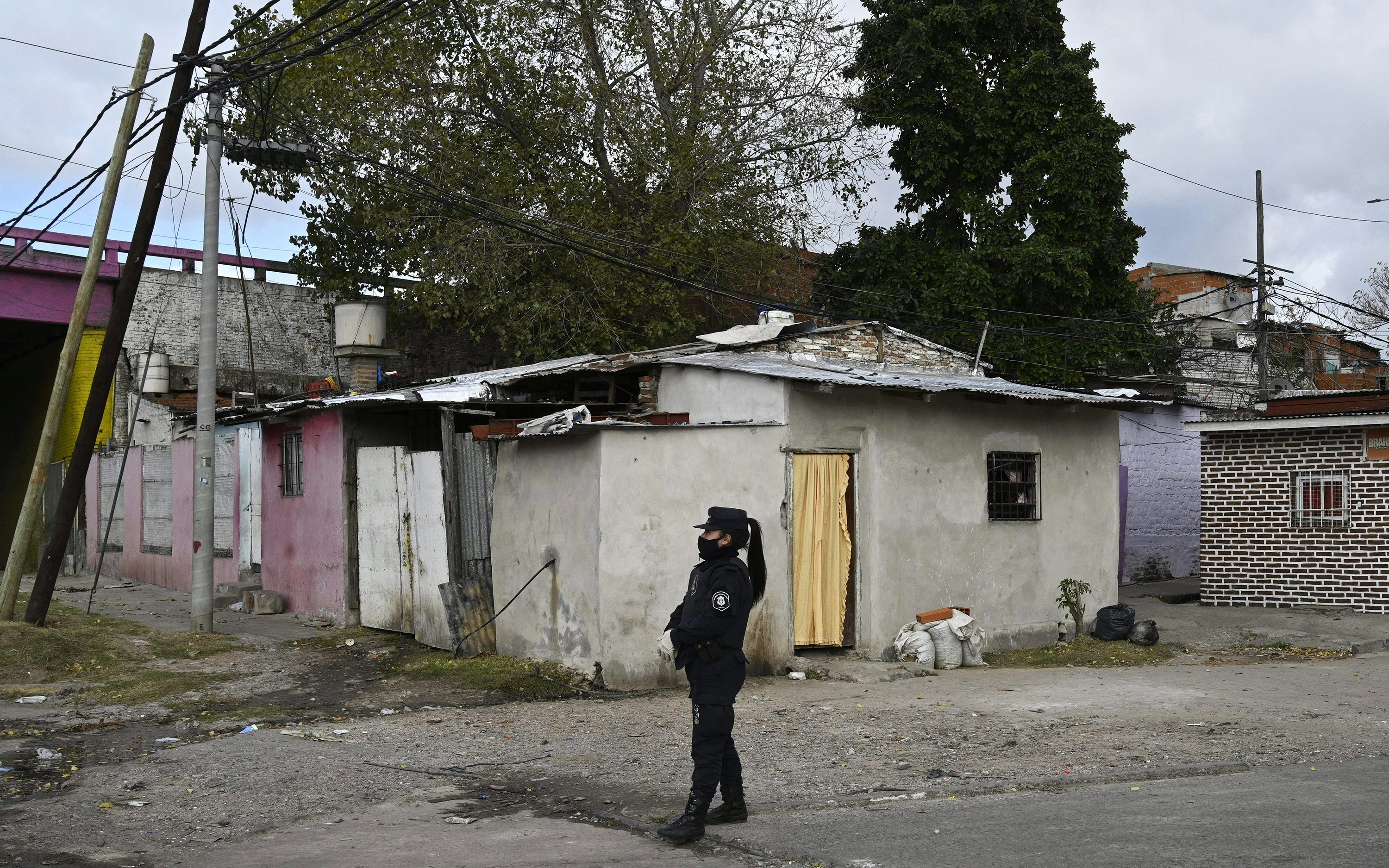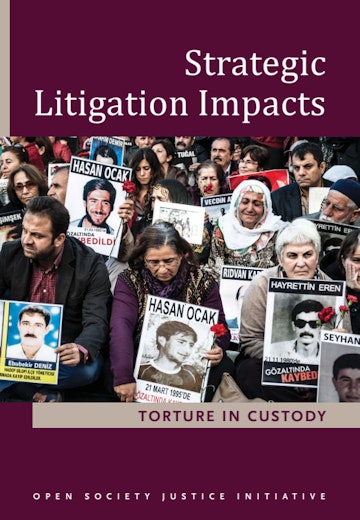Rodríguez v. Google and Another
No search engine liability for third-party content in search results
Who is responsible if a Google search produces results that are defamatory? In October 2014, the Supreme Court of Argentina ruled that search engines are not liable for such content unless they have been notified by a Court, or unless the material was obviously unlawful and caused grave harm. The decision will have important repercussions for Internet freedom in Argentina and beyond. The Court called on congress to introduce new legislation to regulate Internet liability. As a landmark judgment in Latin America, it will have an impact on the courts of other countries in the region who have failed to upgrade their legislation for the internet era.
Facts
The claimant, an Argentine fashion model, sued Google and Yahoo Argentina for damages and sought injunctions against search results of her name that produced links, among others, to several erotic and pornographic websites that used her name and photos without permission. She claimed that the two search engines were responsible for causing harm to her reputation, privacy and image rights.
Rodriguez argued that even though it was the third-party sites that had violated her rights, the search engines had contributed to such primary violations by including links to those sites in their search results. In addition, she claimed that by including copies of photographs of her (known as “thumbnails”) in their search results, the defendants had violated her right to control her image under Argentine copyright laws. She demanded that the search engines omit such search results in the future and pay damages for the harm caused.
In March 2010, a first instance court ruled in favor of the claimant. In May 2013, an appeals court reversed their decision on the question of overall liability: it found that, in principle, search engines should be held liable where they could be proved to be at fault, rather than held strictly liable, and that in the current case they had generally complied with the claimant’s requests to omit specific injurious links in future search results. However, the appeals court held that Google violated the claimant’s image rights under domestic law by providing, in its Image Search results, “thumbnails” of her photos hosted on third-party websites.
Both parties appealed to the Supreme Court of Justice.
Open Society Justice Initiative Involvement
The Justice Initiative filed a “friend of the court” brief with the Supreme Court of Argentina, providing a comparative overview of the laws and practices of the European Union and the United States, and arguments based on international human rights law.
Arguments
Intermediary liability regimes in the EU and the US. The European Union and the United States have special legal frameworks that limit the criminal and civil liabilities of Internet intermediaries for infringements committed by their users without their involvement. US law provides virtually complete immunity for intermediaries, with a special regime regulating their obligations toward copyright violations by their users. Similarly, EU law provides for a system of conditional immunity (or “safe harbor”), whereby intermediaries are safe as long as they disable illegal content upon obtaining “actual knowledge” of the specific violation. They are under no duty of general monitoring or policing of third-party data.
Search engines are not liable for the content of natural search results including “Snippets”. The major jurisdictions covered in the brief do not hold search engines liable for the content of their natural search results, which are the results that directly respond to the user’s query (not related e.g. to the advertising links). Under the case law of the Court of Justice of the European Union, search engines provide essentially a cataloguing service, whereby the results are determined by the user query and the content within those results (“snippets”) is provided by third parties. Similarly, German and Spanish courts have found no liability in cases concerning copyright infringement and defamation by third parties, provided that search engines had no control or actual knowledge of the events. In the UK, courts have found that search engines cannot be considered “publishers”, under common law, of natural search results. And in the US virtually all attempts to engage intermediary liability for natural search results have failed in the courts. Thus, unless service providers specifically interfere with third-party content or refuse to remove it following a court order, they cannot be held liable.
Intermediaries should normally not be required to remove third-party content unless ordered by the court. This section looked at whether notification by an aggrieved party creates obligations or liabilities for search engines. Among the member states of the European Union, the key factors considered in this respect are the “actual knowledge” and notification requirements. The actual knowledge test has been construed to mean that the service provider was aware of facts and circumstances on the basis of which a “diligent economic operator should have identified the illegality.” In some member states, including Spain and Portugal, only a court or other public authority may place intermediaries on notice.
Furthermore, international human rights law largely prohibits government measures aimed at preventing dissemination of ideas and information to public; states are also required, under certain circumstances, to prevent private or indirect forms of censorship. The Inter-American Convention includes particularly strong guarantees against private censorship. In addition, the extra-judicial removal of user-generated content raises serious questions of due process, since online service providers are left to deal with complex legal issues of online expression, playing the role of global censors. Resolving disputes engaging constitutionally protected rights should therefore be left, as a rule, to the courts.
On October 28, 2014, the Supreme Court of Justice resolved the case as follows:
- There can be no strict liability for third-party violations. In other words, search engines are not responsible for harm caused by third-party publications unless and until they are notified by the affected party or a competent authority.
- Intermediaries become liable only upon obtaining “effective knowledge” of illegal content. Concerning what constitutes effective knowledge for these purposes, the Argentine court noted that, in general, only a finding of illegality and relevant notification by a court or other competent authority could place intermediaries on notice. However, the court conceded that in a few cases of “gross and manifest” harm, involving content whose illegality is beyond doubt, a proper notification by the affected party might be sufficient to require intermediaries to act. Such categories may include child pornography, speech that directly endangers the life or physical integrity of others, clear incitement to violence or discrimination, or clearly unlawful publications that grossly violate individual privacy or cause deliberate harm to one’s reputation.
- A majority of the court rejected the claimant’s demand that search engines adopt a filtering system to prevent similar search results (linking the claimant to pornographic websites) from appearing in the future. The majority argued that such a filtering system would amount to a form or prior restraint, which is largely prohibited by the Argentine Constitution and the American Convention on Human Rights.
- On the question of thumbnails, the majority found that their use by search engines could not be considered unauthorized reproduction under national copyright laws.
The court rejected therefore the claims of Belén Rodriguez in their entirety.
Supreme Court of Argentina issues its judgment.
The Justice Initiative files amicus brief with the Supreme Court.
Appeal court ruling.
Judgment of first instance court.
Related Work
Q&A: Safeguarding Human Rights in Detention and in Encounters with Law Enforcement during COVID-19
Two human rights lawyers in Argentina share reflections on how they used litigation and advocacy to defend the rights of people in detention and to combat abusive law enforcement practices during the COVID-19 pandemic.

Strategic Litigation Impacts: Torture in Custody
This study looks at how activists in Argentina, Kenya, and Turkey have sought to use the courts to secure remedies for torture victims and survivors, bring those responsible to justice, and enforce and strengthen the law.

Case Watch: Top Argentine Court Blazes a Trail on Online Free Expression
In a groundbreaking judgment, the Argentina Supreme Court found that search engines are not liable for unlawful third-party content appearing in search results.